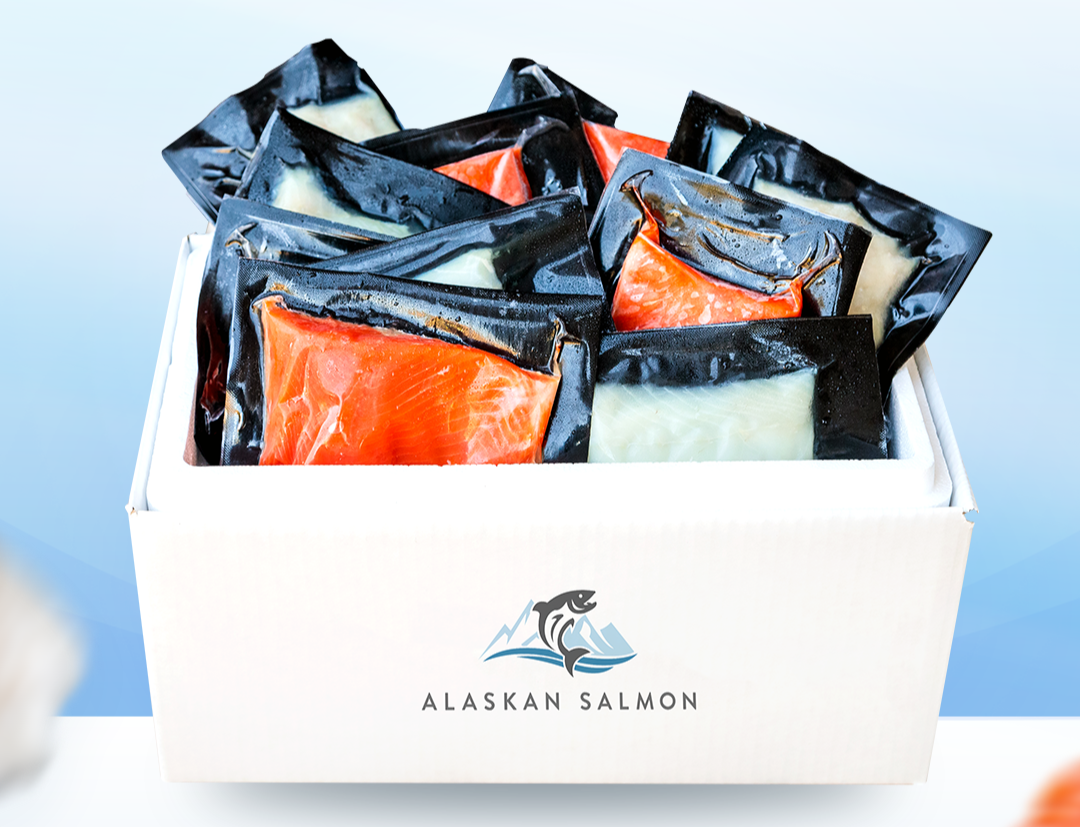How to Season Cod Fish
Updated on Jun 12, 2024
Cod fish is a popular choice for seafood lovers and is widely known for its mild flavor and flaky texture. For those looking to maintain a healthy weight and achieve muscle growth and repair, cod fish offers health benefits.
When it comes to seasoning cod, it can be done in various ways to make it taste better. Experimenting with different combinations allows skilled chefs and home cooks to find the optimal flavor profile for cod without overpowering its delicate taste.
Here’s what you need to know about the different types of seasoning and how to season the fish using a dry rub or wet marinade.
Types of Cod Seasoning
There are some factors to keep in mind when choosing cod seasonings.
For example, grilling may benefit from robust spice rubs, while baking may be better suited for milder herb-infused oils. In addition to your preferred cooking method, you might also want to consider your dietary preferences and restrictions. Those watching their sodium intake may prefer herbs and spices over salt-heavy blends.
Cod seasonings can be broadly categorized into two main types: dry and wet. Learn their differences below and some examples for inspiration:
Dry Cod Seasoning
Dry seasoning is a mixture of spices and herbs that is rubbed onto the surface of cod. When applied to cod, it not only adds flavor but also forms a delicious crust when cooked.
Below are two types of dry cod seasoning:
Herbs and Spices
Using herbs and spices to season cod is a versatile and flavorful approach to enhancing the delicate taste of the fish. Herbs such as thyme, rosemary, parsley, dill, basil, and cilantro contribute freshness, aroma, and nuanced flavors, adding depth to the dish.
When using herbs and spices to season cod, the goal is to create a harmonious balance of flavors that enhance the natural taste of the fish without overpowering it.
Moreover, opt for fresh herbs whenever possible, as they tend to have a brighter flavor and aroma compared to dried herbs.
Rubs
Using rubs for cod seasoning involves applying a dry mixture of herbs, spices, and other flavorings directly onto the surface of the fish before cooking. Rubs offer a convenient way to add flavor and complexity to cod without the need for a liquid marinade.
Common ingredients in rubs for cod include herbs like thyme, rosemary, and parsley, and spices such as paprika, garlic powder, and black pepper. Salt and sugar may also be used for balance.
Rubs can be customized to suit individual preferences, allowing for endless flavor combinations and creativity in the kitchen.
To use a rub, simply coat both sides of the cod fillets evenly with the mixture, gently pressing it into the flesh to ensure adhesion. Let the seasoned cod rest for a few minutes to allow the flavors to penetrate before cooking using your preferred method, such as baking, grilling, or pan-searing.
The result is a flavorful and aromatic dish that highlights the natural taste of the cod while adding depth and complexity to each bite!
Wet seasonings
Wet seasonings for cod fish refer to marinades or sauces that are applied to the fish before cooking. These seasonings typically include a liquid component, and may also include include herbs, spices, and other flavorings.
Chefs choose wet seasonings to add moisture and flavor to the cod, and they can help to tenderize the fish as well.
Below are two types of wet cod seasoning:
Marinades
Typically consisting of a combination of acidic ingredients like citrus juice, vinegar, or wine, along with oil, herbs, spices, and aromatics—marinades work to soften the fish while adding depth and complexity to its taste.
The acidic components help break down the proteins in the cod, which results in a more tender and succulent texture, while the herbs and spices contribute aromatic and flavorful notes.
To use a marinade, simply immerse the cod fillets in the mixture, ensuring they are fully coated, and let them marinate for anywhere from 30 minutes to several hours in the refrigerator, depending on the intensity of flavor desired.
Once marinated, the cod can be cooked using various methods such as grilling, baking, or pan-searing to achieve a delicious and flavorful dish.
Sauces
Using sauces to season cod adds richness, flavor, and moisture to the dish, providing a delicious finishing touch.
Common sauces for seasoning cod include lemon butter sauce, tomato-based sauces, coconut curry, and herb-infused sauces. These sauces can be prepared separately and served alongside the cooked cod or drizzled over the fish during or after cooking.
Lemon butter sauce, for example, adds a bright and tangy flavor with a luxurious texture, while tomato-based sauces provide a savory and slightly sweet taste.
Coconut curry offers a rich and aromatic flavor profile with hints of spice, perfect for adding depth to the cod's taste.
To use sauces for seasoning cod, simply cook the fish using your preferred method, then spoon the sauce over the fillets before serving or serve it on the side for dipping or drizzling.
How to Dry Season a Cod Fish
Here's a step-by-step guide on how to dry-season cod fish:
- Start by rinsing the cod fillets under cold water and patting them dry with paper towels. Removing excess moisture ensures that the seasoning adheres well to the fish.
- Select your desired dry seasonings based on your preferences and the flavor profile you want to achieve.
- Sprinkle the chosen seasoning mixture evenly over both sides of the cod fillets. Use your fingers or a spoon to gently press the seasoning into the flesh of the fish, ensuring it adheres well.
- Allow the seasoned cod fillets to rest at room temperature for about 10-15 minutes before cooking. This gives the seasonings time to penetrate the fish and enhance its flavor.
- Cook the seasoned cod using your preferred cooking method, such as baking, grilling, pan-searing, or broiling. The cooking time will vary depending on the thickness of the fillets and the chosen cooking method.
- Once the cod is cooked through and flaky, remove it from the heat and serve immediately. Garnish with fresh herbs or a squeeze of lemon juice, if desired, to enhance the flavor even further.
By following these steps, you can easily dry-season cod fish to create a dish that's sure to impress. Adjust the seasonings to your taste preferences and experiment with different combinations for a unique culinary experience.
How to Wet Season a Cod Fish
Here's a step-by-step guide on how to wet-season cod fish:
- Start by preparing the marinade according to your recipe or personal preference.
- Place the cod fillets in a shallow dish or a resealable plastic bag, ensuring they are in a single layer. Pour the prepared marinade over the cod, making sure to coat each fillet evenly. If using a plastic bag, squeeze out any excess air and seal tightly. Refrigerate the cod and let it marinate for at least 30 minutes to several hours.
- After marinating, remove the cod fillets from the marinade and discard any excess liquid. Allow the fillets to sit at room temperature for a few minutes before cooking to ensure even cooking.
- Cook the marinated cod using your preferred cooking method, such as grilling, baking, pan-searing, or broiling. Be sure to adjust the cooking time based on the thickness of the fillets and the chosen cooking method to prevent overcooking.
- Once the cod is cooked through and flaky, remove it from the heat and serve immediately. Garnish with fresh herbs, a squeeze of lemon or lime juice, or a drizzle of sauce, if desired, to enhance the flavor even further.
By following these steps, you can easily wet-season cod fish to infuse it with delicious flavors. Remember to avoid marinating for too long, as acidic marinades can break down the delicate texture of the fish if left for too long.
Frequently Asked Questions
Beginners often have questions about seasoning cod fish. I’ve prepared a list of common questions and answers below to help you feel more confident with the process.
How can I prevent the seasoning from overpowering the delicate flavor of cod?
Use a light hand when seasoning and choose complementary flavors that enhance rather than mask the natural taste of the fish. Start by using smaller amounts of seasoning and gradually add more to taste, keeping in mind that you can always add more but can't take it away once it's been added.
Moreover, opt for milder herbs and spices such as parsley, dill, lemon zest, and garlic powder, and avoid using overly potent or pungent ingredients that may overpower the cod's subtle flavor.
Can I season cod in advance, or should I do it just before cooking?
It's generally best to season cod just before cooking rather than in advance to prevent the fish from becoming too salty or overly seasoned. Cod is a delicate fish, and marinating or seasoning it too far in advance can result in it absorbing too much salt or flavor, potentially overpowering its natural taste.
Are there any seasonings or ingredients I should avoid when seasoning cod?
It’s best to avoid using strong, overpowering spices and ingredients that may mask its delicate flavor. Steer clear of overly pungent spices like cloves or strong herbs like sage, as well as excessively spicy seasonings like chili powder or hot sauce, which can overpower the subtle taste of the fish.
You also need to be cautious with acidic ingredients like vinegar or citrus juice, as using too much can overpower the cod's natural flavor and alter its texture if marinated for too long.
Summary
By now, you understand that seasoning cod can take skill, especially when it comes to achieving the right balance of flavors and textures. At the end of the day, the choice between dry and wet seasoning for cod before cooking depends on your personal preference.
Looking for more delicious ideas to prepare cod? Check out our guide to salted cod.








